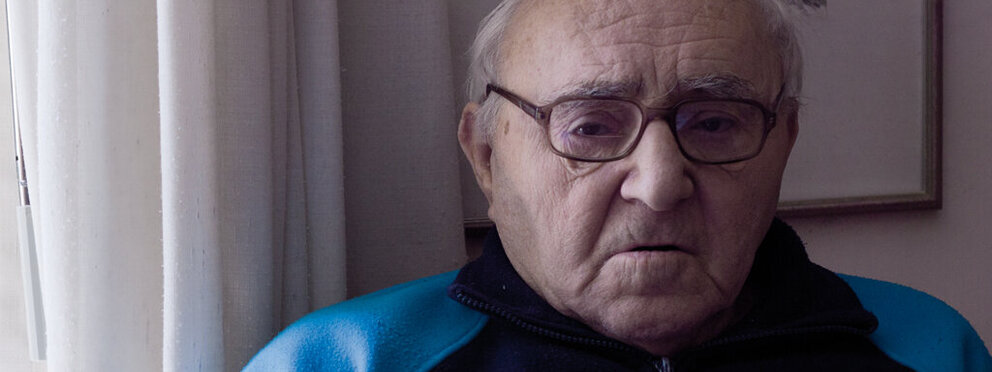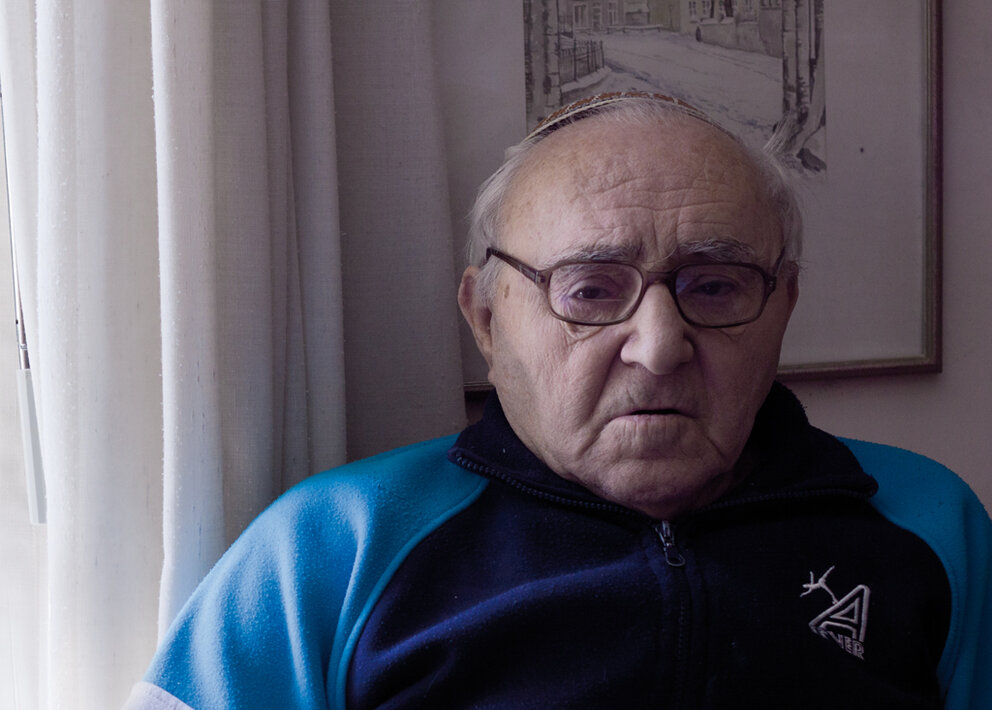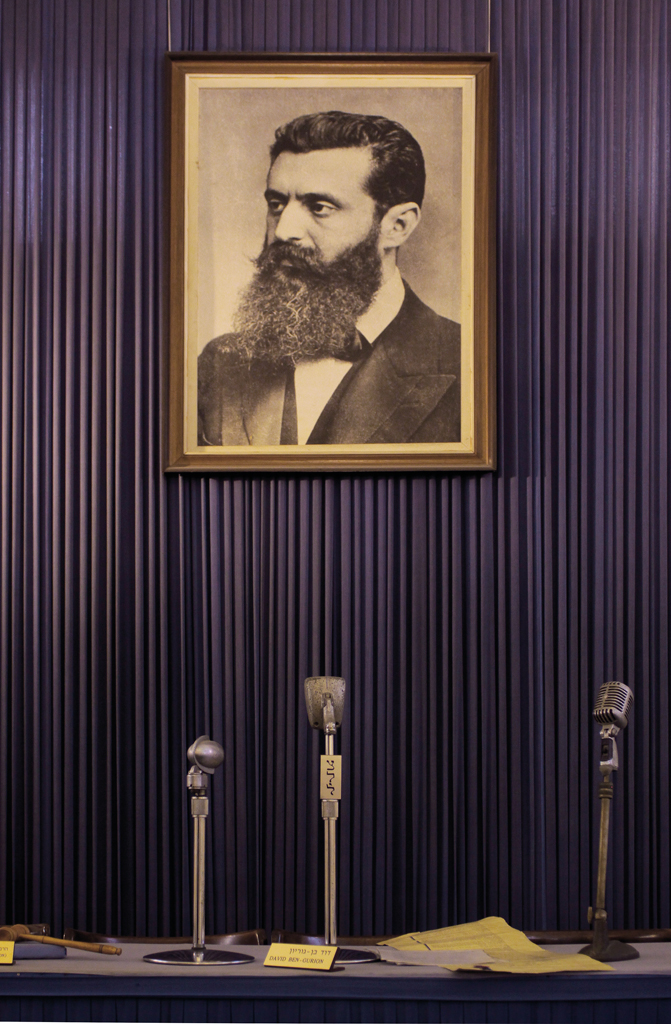
Chanoch Mandelbaum
Chanoch Mandelbaum is physically very unwell. Despite this, he has made the great effort to talk to us and move for the photos. Although it causes him great pain. He is still fighting. To make sure that he and the other survivors are listened to, that their stories are memorised and not forgotten.
About Chanoch Mandelbaum
As one of many children sent from Germany to Holland, Chanoch Mandelbaum, who was still called Heini at the time, was able to stay in Westerbork until 1943 thanks to his Zionist beliefs. Under the pretence of being exchanged to Palestine, he was then sent to Bergen-Belsen and was one of the few to survive the last journey of a transport of Jews on the Lost Train.
»They did talk. We always knew everything, heard everything. Where did they hear it from? The JPA – Jewish Flatfoot Agency. Why? Jews had a lot of flat feet, that was well known.«

A picture to live on
The picture is from the Independence Hall Museum in Tel Aviv. Ben Gurion proclaimed the state of Israel at the table under the picture of Theodor Herzl in 1948. Chanoch had worked as a labourer in a carpentry workshop on the production of this table. He told us: "I hammered the first nail into the state of Israel."

Our encounter
As a young man, Chanoch came to the promised land with the love of his life and great hopes. His voice resonates with pride as he recounts how, as a carpenter, he hammered the first nail into his state of Israel. The table he made back then for the proclamation of Israel's independence can still be seen today. However, the visions of that time seem to be disappearing with Chanoch's generation. This makes him sad and angry.
But there are also beautiful things. The girl he spoke to in Paris after the war has been married to him for over 65 years. She sits by his bed during our conversation and makes sure he doesn't strain himself too much. A collage of their family tree hangs on the wall. There are his many children, grandchildren and great-grandchildren, who make Chanoch smile every time they are mentioned.
We say goodbye at lunchtime. Chanoch is exhausted. Nevertheless, he emphasises how important it is to him that we pass on his story. He has made it his mission to speak while he still can. As we walk through the hallway, a thought crosses our minds: survivors who are unable to let go because of a society that finds it easier to repress.
